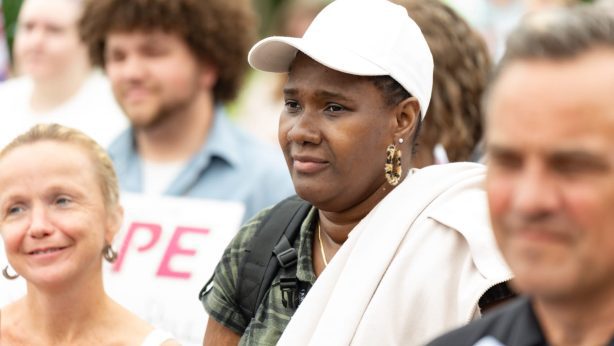Justice Murray Sinclair remembered
This week’s edition of who is saying what about public health care is compiled by Pat Van Horne.
Murray Sinclair led an inquest into the deaths of 12 children at Manitoba’s Health Sciences Centre
“He led the 1994 Pediatric Cardiac Surgery Inquest that examined 12 deaths of children at the Health Sciences Centre. . . As a pioneering Indigenous lawyer and only the second Indigenous judge to take a seat on the bench in Canada, Sinclair was at the forefront of judicial inquiries that changed how we view this country. . . Sinclair himself said: ‘I believed then, and I still believe now, that if I ever start crying about what I’ve heard, then I’m going to have trouble stopping… When I try to put a face to everybody, I have difficulty doing that. I can’t. But I remember groups of people. Men, women, Elders, elderly women, elderly men. The Inuit people, the Métis people,'”stated an editorial on the death of Murray Sinclair in the Winnipeg Free Press, November 4, 2024. Sinclair later went on to chair the Truth and Reconciliation Commission (TRC) that documented the experiences of Indigenous people who endured the residential school system.
Survey sheds light on Indigenous access to health care
“Nearly one in five Indigenous people—or 20 per cent—said they experienced unfair treatment, racism, or discrimination from a health care professional in the past 12 months. Out of these, First Nations women living off reserve and Métis women were found to be twice as likely to go through such discrimination. . . Over a quarter of respondents revealed that they had unmet health-care needs, partly due to difficulties getting a referral to a specialist and not receiving current treatment and/or prescriptions. Additionally, First Nations living off reserve and Inuit people cited non-availability of services in their vicinity, or having them far away, as other reasons behind their unmet health care needs. . .Women were found to be more disadvantaged compared to men. . . Additionally, a majority of Indigenous communities surveyed said their health concerns were minimized or dismissed. . . They also complained that the health care they received did not respect their traditions, social norms and culture by, for example, not integrating traditional therapies and healing practices,” reported The Hill Times, November 5, 2024 on a Statistics Canada report released on November 4, 2024
Judge rules Nova Scotia violated rights to out-of-province care
“Given my experience over the last five years, every turn has been more shocking than the previous. . .I just feel like I’m still holding my breath until I actually get surgery and, or, get reimbursed for my expenses so far that I’ve had to pay out of pocket for surgery that I needed. . . I hope that people learn, I think first and foremost, to stick up for themselves. . . I think people need to demand from our leaders what they deserve. . . I have met so many people along the journey of fighting for my own health care that have simply given up. People who applied to the out-of-province program, were told no at some point, and then just simply gave up,” said Jennifer Brady, who has won a legal case over coverage for out-of-province surgery, CBC News, November 1, 2024
What makes a great doctor? Toronto hospital says it outperformed benchmarks in patient safety
“Our goal has always been to create an environment where safety and quality go hand-in-hand with innovation. . . We constantly push ourselves to not just meet but exceed the standards of care, allowing us to provide our community with high-quality, high reliability healthcare every day,” said Barb Collins, president and CEO of Humber River Health, following an assessment by Canadian Institute for Health Information (CIHI), November 1, 2024
Full dental plan roll out still a bit vague: two-thirds of Canadians to be covered by the program currently aren’t eligible
“We’re in a process of constant evaluation to make sure that as we bring new people online … we’re listening, we’re incorporating that feedback from oral health providers . . . We’ve got to make sure that we nail this. . . We’re going to be evaluating that, and that’s going to put us in a position to make a determination and exactly when we roll out those next cohorts,” said Federal Health Minister Mark Holland to CBC News, October 31, 2024
New doctors must practice in the public system, says Québec health minister
“While too many Quebecers are still waiting to be treated, too many doctors decide, from the start of their career, to leave the Quebec public network . . . We will take steps to ensure that the population has access to the care for which they pay,” said Quebec Health Minister Christian Dubé who says he will table a bill, to be debated next spring, that would require family doctors and specialists to start their careers in Quebec’s public network, The Canadian Press, November 4, 2024
“Skunk at the garden party”– public health care shouldn’t be relying on private donors
“For years now, we have watched this (Ontario) government siphon off public dollars into private pockets. Why are we not in the streets protesting this? Why does Ontario have the second lowest per capita funding of health care in the entire country? Premier Ford, quit squandering our money. . . This is not universal health care. It’s social policy by plutocracy,” wrote Rev. LeeAnn McKenna, Mono, Ontario in a letter to the editor in the Toronto Star, October 31, 2024
Nova Scotia premier’s claims on health care questioned ahead of provincial election on Nov. 26
“Instead of fixing health care. . . (Premier) Tim Houston is relying on quick band-aid solutions and pouring millions of public dollars into apps, tech deals and shady contracts . . . Meanwhile, Nova Scotians are still stuck with a patchwork of health-care options that are difficult to navigate,” said NDP leader Claudia Chender to Global News, November 2, 2024



